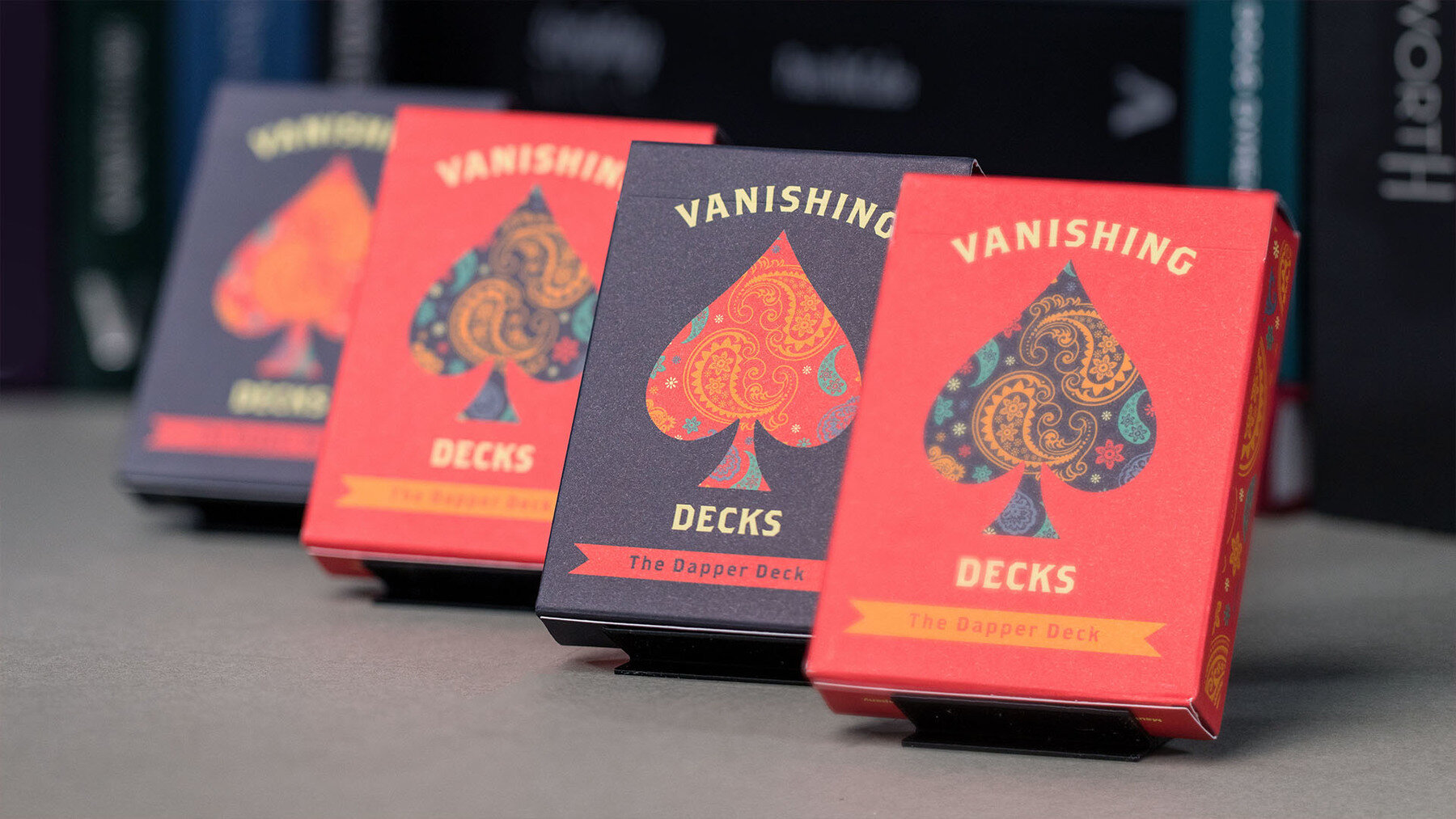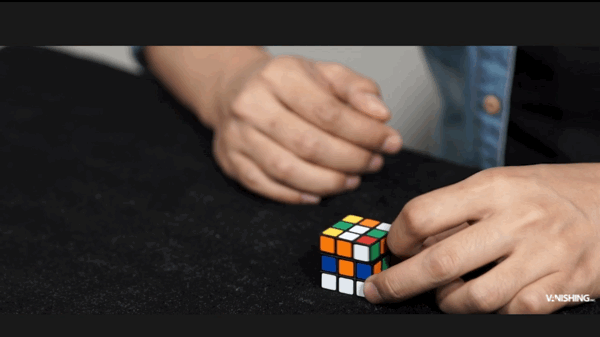This is a good thing to consider. The dumbest magicians I know are the ones who say things like: “Why does the bill go into the lemon? It doesn’t matter! It’s magic. We’re magicians and we do the impossible. That’s all that matters.”
That type of thinking is so goddamn stupid and led to centuries of linking rings and cups and balls and egg bags and other demonstration of meaningless impossibilities. That in turn led to the public perception of magic as something trivial.
Saying, “I’m a magician. I do the impossible. That’s all that matters,” is like saying, “I’m a baker. I put things in ovens. That’s all that matters.” No. That’s not all the matters. The end product is supposed to taste good.
Here’s something to consider in the area of arbitrariness and logic when doing the impossible. In the early days of the magic focus group testing I helped conduct in NYC we did a brief test of this. It’s something I’d like to try again on a broader scale. (I think we did it with only ten people originally. Before this site existed, if we were getting results that seemed definitive after a handful of people, we didn’t really feel the need to continue on, because it was something we were only doing for our own edification.) What we did was a vanishing/reappearing ring trick two different ways. The first way was that we vanished the ring and had it reappear in a ring box. The second way was that we vanished the ring and had it reappear in a mint tin. The effect is essentially the same: Ring disappears, reappears in some sort of box that was isolated from the proceedings. The method used was identical for the tricks. The presentation was the same. The only difference was that in one case the ring reappeared in a ring box (a logical location for a ring) and in the other it reappeared in a mint tin (an arbitrary location for a ring).
On average, the people who saw the ring go to the ring box rated the effect something like 50% higher than those who saw it go to the mint tin. Now, in fairness, if we tried it again on a larger scale, the difference might not be that pronounced. But I’m fairly certain it would still be significant.
Ideally you don’t want magic to feel like a bunch of random elements jammed together with something impossible happening along the way.
By this reasoning, you might argue that the best card to impossible location should be card to card box, because that’s the most “logical” place for a card to be. But I don’t think that would be true. While the card box is logical, it’s not novel. And novelty is also a big factor in strong, memorable card magic (card magic specifically, because most other types of magic are novel on their own). So, ideally, you’d want something novel and logical.
Is a luggage tag novel? Yes. Logical? No. So what do you do?
Well, you could force a connection by having someone select a card and write down their ideal travel destination on the card, and then have it disappear and reappear in the luggage tag. I don’t love it, but it sort of works. You’re tying the card and the place it will reappear together presentationally, which is good. And for most performers/audiences, that’s probably enough. But it still doesn’t explain why you’re bothering to make a card go to a luggage tag.
Maybe there is no good reason for this. But here is how I would handle it. I would use a meta-presentation. That is, I would use a presentation about magic tricks. This is a very powerful way to make almost any trick “logical.”
Think of it this way, if I make your bill go into a lemon, that’s a very arbitrary bit of impossibility. But if I tell you about this magic trick called Bill to Lemon and how it’s a classic and you can see a bunch of versions on youtube. And I tell you how it’s normally done. “The only way to do it is, of course, to have a duplicate bill. You’ll see versions where the person signs the bill, but that person is in on the trick. They’ve already signed another bill previously that was put in the lemon. They just cut a slit in the back of the lemon and never show you that side.”
Of course, this isn’t true. You can do Bill to Lemon without a slit in the lemon and with a borrowed signed bill. But I’m using these supposed limitations of the trick to create a meta-presentation. So now when I talk about how I came up with my own version to try and fool some master magician so I can gain entrance into some secret society blah, blah, blah… well, now there is nothing arbitrary about making the bill appear in the lemon. Now it’s this traditional thing that I am replicating for this person because I need to “try it out.”
So here’s how I might use a “meta-presentation” for this card-to-luggage-tag trick. This is not for everyone because it takes a one-minute trick and makes it a ten-minute trick, but it’s the sort of thing I like.
First, I’d ask my friend for some help with something. Then I’d give them a little “background” on what I was doing. “So there’s this classic trick called Card to Box…,” and I’d go on to tell them a little about it and perform it for them. The method I use would be a bad method, for the purposes of exposure. So I’d use a crappy type of convoluted force and a duplicate card that was already in the box. Before you shit your pants about “exposure,” realize that I’d only be exposing things people already understand—bad forces and duplicate cards.
“That’s the standard version,” I’d say. “But I’ve been working on improving it little by little for the past few years. And I think it’s ready to test out. Here,” I’d say, spreading the deck face-up on the table, “take any card you like.” They would take a card and I would have them sign it on the face.
“Now, you’re going to choose a box. Having it go to the card box is a little dull. I want to choose the location it goes to at random.”
At this point, I would introduce a “perfectly normal” list of different types of “boxes” on my phone that I had created for the purposes of this trick. (That would be the Digital Force Bag app.) This list would contain anything “box-like” that might be found in the home: Cereal box, Kleenex box, dresser drawer, box of raisins, toilet tank, kitchen cupboard, jewelry box, etc. They would choose a random number and find that the “box” they’d chosen was “suitcase.”
“Okay, let’s give that a shot.” I’d put the card back in the deck and shuffle it, apparently losing the card in the deck (really keeping it on top). I’d do some action to supposedly make the card vanish. “With any luck it should be in my suitcase.”
We’d go to my room, pull out my suitcase from under my bed. I’d open it up and find it was empty. “Damn.” I’d spread through the deck. “What the?… Well, it’s not here.” I’d look around the general area for it. “Did I get close? Shit, did it go back to the card box? That would be annoy— wait!” I’d notice the tag and then pull out their signed card. “Dang-it! So close.” I’d act a little frustrated. “That’s still pretty good, but not quite what I was going for.”
Depending how the luggage tag gets loaded, I might do this instead. I might have the luggage tag sitting loosely inside the suitcase, along with a sock, and a lint roller or something like that. The deck is in my left hand. We open the suitcase, I pull out the objects in the suitcase with my right hand (luggage tag first-—loading it) and place them in my left hand, as if looking for the card under those items. I’d toss the items back in the empty suitcase when I didn’t find anything. I’d put the deck in my back pocket so I could free my hands to look in the various pockets inside the luggage. “Damn,” I’d say, commenting on my apparent failure. Then I’d look around the suitcase to see if I got close. I’d look back in, pick up the sock and turn it inside out to see if anything is inside. Then I’d notice the luggage tag and—with empty hands—pick it up and “notice” the card inside.
You might say it doesn’t make sense for a luggage tag to be inside the suitcase, but that doesn’t seem that weird to me. Maybe it was never used. Or maybe I had taken it off for some other reason and tossed it inside. But if you feel it’s weird you could keep it on the outside of the suitcase and load it when you’re pulling the suitcase out.
Again, this is a very particular style of performance (long-form/meandering/casual) that’s not for every performer. But I could see myself doing it. If you want something more direct using a similar methodology, it would probably make more sense to use this version of the effect which is a confabulation style trick where their travel information appears inside the luggage tag. (Although that version has some negative reviews in regards to doing the trick with the tag on the actual luggage.)
Alternatively, if you wanted to add some logic and novelty to the card version, offer to show someone a trick at the airport while you’re waiting for your luggage on the carousel. If you time it well so the card apparently disappears right when your luggage spins around to you, that would be pretty cool. But that’s probably more of a theoretically good idea for this prop. Unless you’re someone who travels a lot with a partner and you check your luggage and you have spectacular luck and timing, I doubt it’s worth it to buy this trick in order to pursue that idea.















